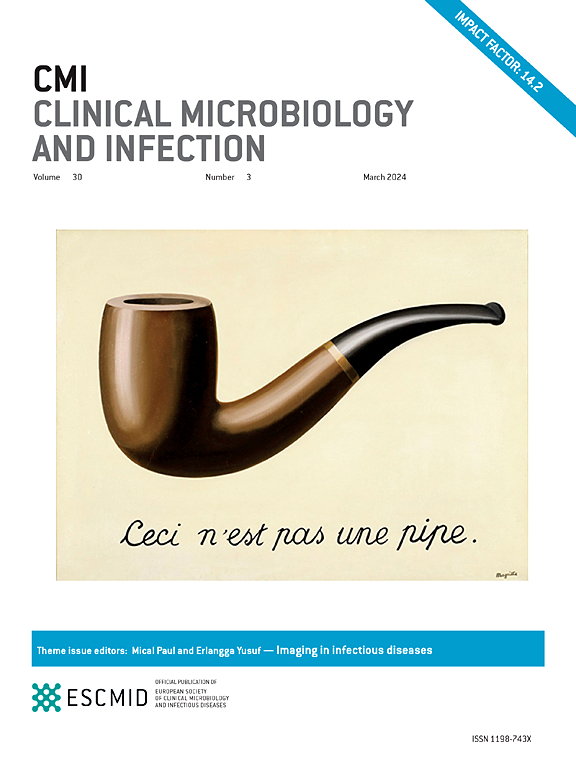How we diagnose and manage refractory and resistant herpes simplex virus mucocutaneous infection after haematopoietic cell transplantation
IF 10.9
1区 医学
Q1 INFECTIOUS DISEASES
引用次数: 0
Abstract
Background
Herpes simplex virus (HSV) infection is a clinically significant complication in haematopoietic cell transplant (HCT) recipients. Refractory and resistant (R/R) HSV infections may occur in this patient population, particularly after prolonged exposure to anti-HSV agents.
Objectives
This study aims to provide a comprehensive review of the diagnostic approach and the treatment options for R/R HSV mucocutaneous infections in HCT recipients and to highlight future treatment strategies.
Sources
We searched the PubMed Central Database and Embase to identify published studies on R/R HSV infections in HCT recipients. We used the search terms “herpes simplex virus,” “resistant∗,” OR “refractory,” “immunocompromised,” “immunosuppress∗,” and “immunodeficien∗,” and screened the results for articles reporting R/R HSV infections among HCT recipients. We chose an HCT recipient with a complicated refractory HSV infection as a representative clinical case.
Content
A clear clinical definition of refractory HSV infection is currently not available, which can lead to delays in diagnosis and treatment, negatively impacting patient care. Apart from two small randomized controlled trials in the 1990s that looked at treatment with systemic foscarnet and topical cidofovir in patients living with human immunodeficiency virus, all treatment recommendations for R/R HSV infections are based on observational studies and case reports. The use of alternative treatment options often comes with serious side effects, such as kidney toxicity. This underscores the urgent need for safer and more effective treatment options. Pritelivir, a new oral antiviral medication, is currently being studied in a phase 3 trial for R/R HSV infections in immunocompromised patients. Limited data from the Early Access Program, which allows compassionate use, suggest that pritelivir holds promise as a treatment option for HCT recipients with R/R HSV infections.
Implications
The proposed R/R HSV mucocutaneous infection diagnostic and treatment algorithm guides the appropriate management of these difficult-to-treat infections, potentially improving patient outcomes.
求助全文
约1分钟内获得全文
求助全文
来源期刊
CiteScore
25.30
自引率
2.10%
发文量
441
审稿时长
2-4 weeks
期刊介绍:
Clinical Microbiology and Infection (CMI) is a monthly journal published by the European Society of Clinical Microbiology and Infectious Diseases. It focuses on peer-reviewed papers covering basic and applied research in microbiology, infectious diseases, virology, parasitology, immunology, and epidemiology as they relate to therapy and diagnostics.

 求助内容:
求助内容: 应助结果提醒方式:
应助结果提醒方式:


